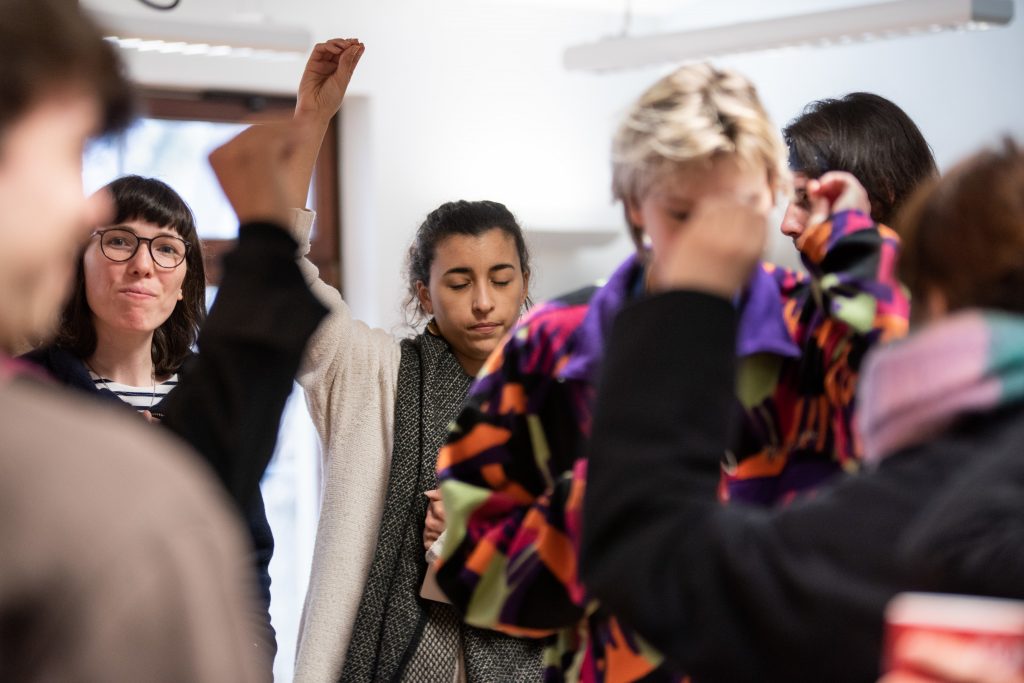Nov 30, 2023
Transnational Assembly of Solidarity Across Borders
The online event took place as part of a larger three day hybrid assembly that engaged members of different civil society groups, worker representatives, community organisers, educators, artists and researchers from the field to convene on how to build solidarity across borders, tackle disinformation exchange best practices on how to increase involvement more and specifically more diverse groups of EU citizens and residents in civic participation.The tripartite assembly served to create a space of trust and mutual understanding and offered an occasion for democratic participation and deliberation online as well as in person. The online event focussed specifically on building trust in assemblies as a precondition for
Opening up several transformative learning spaces, the tripartite assembly was specifically targeted at citizens affected by unequal social, gender and migrant rights and those in precarious employment conditions, as well as those with lower levels of education. It promoted reflexive learning and was run from a bottom up approach, empowering those who are often excluded or prevented from participation in such deliberative spaces. Overall, the assembly was a rewarding occasion of learning and exchange in Berlin. In the face of the world situation, the methodologies employed offered a safe and trustworthy space for citizens to engage in contemplation and conversation, juxtaposed to the rising climate of distrust that many people experienced over the last period, especially heightened by the Covid-19 pandemic, the cost of living crisis, the rise in disinformation and the uncertainty and fear induced by ongoing war and injustices.
Selection of participants for the assembly included our own networks and close collaboration with local partners, associations (including trade unions, migrant workers organisations and civil society groups) and with institutional partners (including the University of Gdansk, University of Siegen and University of Kassel). The diversity of participants recruited for the assembly and the possibility to join in-person and online allowed for an interdisciplinary conversation, cross-sector collaboration and manifested in a fruitful exchange. Besides our existing partnerships and networks in Berlin and transnationally, we advertised the assembly via social media and were able to attract a large number of participants, residing in 13 different EU countries and from a very diverse set of backgrounds, as well as engaging participants from previous TEA assemblies.
Leading up to the European elections in 2024, the assembly was a successful opportunity to bring together those with little access or often excluded from democratic deliberation processes, who at this occasion had the chance to participate fully and engage in conversation with a range of other citizens.

